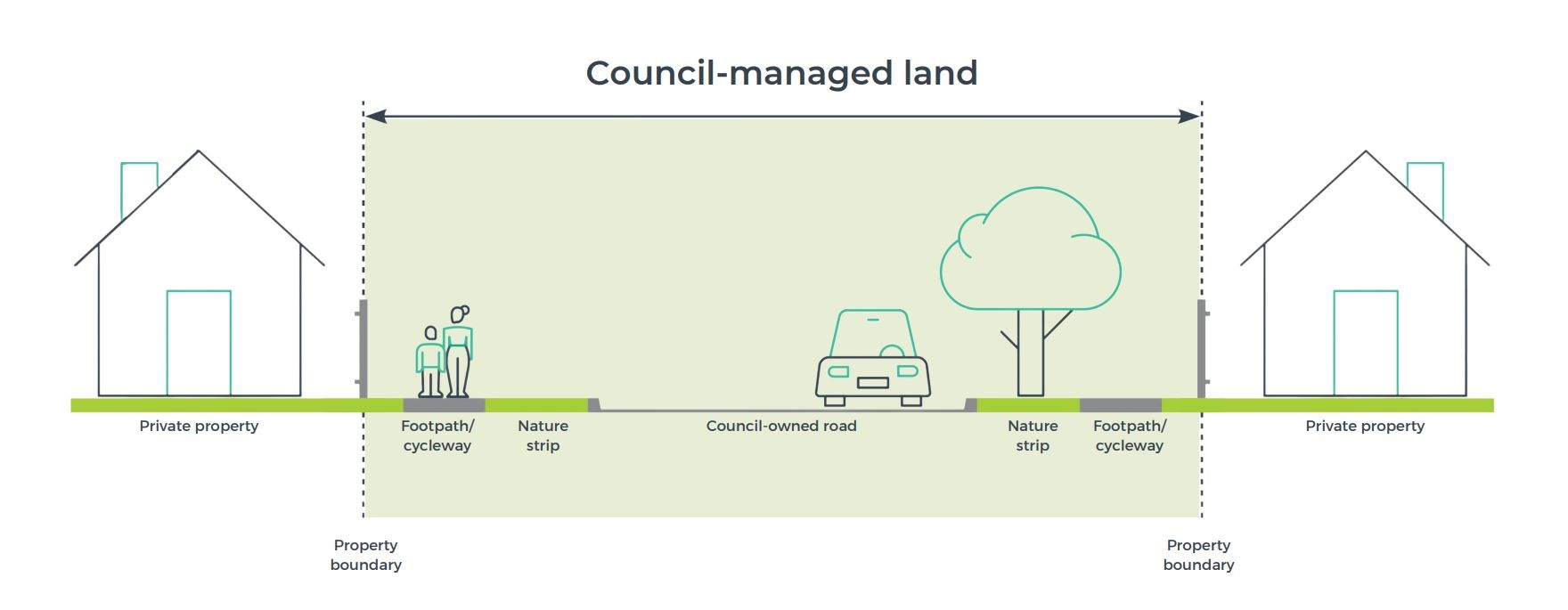A Roads Act (RA) application, often referred to as a 'Section 138' is required when there are proposed within the road reserve.
A road reserve is the section of land between property boundaries, divided by a road. The road reserve often contains the verge, nature strips, street trees, footpaths & cycleways, kerb & gutter, vehicle parking bays, bus stops, public signage, essential services (such as street lighting, water, sewer, electricity, and telecommunications infrastructure), and the carriageway of the road itself. In some cases, property owner assets such as driveway crossovers and water connection pipes or fittings may be included in a road reserve classification.

Road reserves contain either local roads, or state and regional ‘classified’ roads. Local roads are in the care and control of the Council, whereas state and regional classified roads are in the care and control of the NSW State Government. The two state agencies involved are Transport for NSW (TfNSW) and Roads and Maritime Service (RMS) that have jurisdiction over roads such as highways, main roads, secondary roads, tourist roads, and transitways.
Section 138 Roads Act applications are lodged with and determined by the relevant jurisdictional body, being either Council for works within local roads, or TfNSW and RMS for works affecting State and Regional Classified Roads. The NSW Road Network Classifications administered by TfNSW can be viewed here.
Works within the road reserve may include activities like:
- opening a road (digging in or creating a trench through or under a kerb or footpath)
- erecting, removing or interfering with a structure, work or tree on a public road (includes using small and/or large machinery on a public road)
- pumping water into a public road from adjoining land
- driving any vehicle across a kerb or footpath
- creating a temporary vehicle crossing
- connecting a road (whether public or private) to a public road.
You should contact TfNSW and RMS for information and requirements for works affecting State and Regional Classified Roads.
The following information relates to s.138 Road Act Applications affecting local roads that are in the care and control of the Council.
1. Prepare
Make use of our Development Engineering Standards to assist you prepare your RA application.
If you are unsure what to include in your application, you can reach out to our Development Engineering Department. If you are unfamiliar with the application process or your application is somewhat complex, we recommend you reach out to a suitable qualified professional to assist you prepare your application.
Your RA application will often include:
- Site Plan including drawings of proposed works (these may be based on Council’s standard drawings for vehicles crossings modified to suite the existing situation).
- relevant supporting documentation as indicated in the development consent.
- details of any non-conforming designs and justification for proposing use
- A Traffic Management Plan
- Copy of Public Liability insurance
- Risk Assessment/Safework method Statement
2. Register
Prior to being able to submit any Application through the NSW Planning Portal, you must create an account (you may have already created an account to submit your Development Application, you can use the same login details).
Register or log in
3. Apply
Once you have all the required documentation, you're ready to apply for your RA. You'll need to upload electronic versions of the required documentation in order to complete your application.
Apply for a RA
4. Pay
Lodgement fees will be calculated by Council staff and provided to you via email after we've received your RA. Your RA will not be officially lodged until all outstanding fees have been paid.
5. Assessment
Our Development Engineers will assess the plans and specifications. Depending on the nature of the works, your application may require an inspection prior to works commencing and following the completion of works. If this is required for your application, our team will contact you.
6. Determination
Your application will either be Determined (approved) or refused by the Development Engineering Department. You will receive the notifications via email. All documents can be accessed via your account with the NSW Planning Portal.